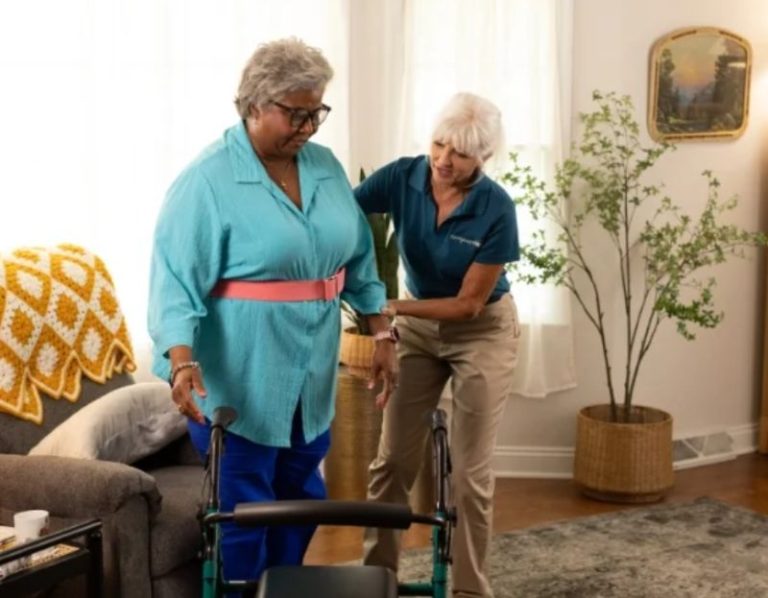

Injuries can change lives drastically, pushing individuals into new roles they never anticipated. While recovery may restore physical abilities, emotional and social adaptations are equally critical.
Striking a balance between independence and the assistance needed during this time is often challenging. Understanding how to navigate this balance contributes significantly to a person’s well-being, leading to a successful reintegration into daily life.
Understanding the Impact of Injury
Injuries often lead to significant physical, emotional, and psychological changes. These changes can affect an individual’s sense of independence, leading to frustrations or anxieties about returning to normal life.
Understanding these impacts is vital, as individuals may face substantial challenges, including mobility limitations, pain management, and navigating new routines. It’s important to recognize that recovery does not solely pertain to physical healing.
Emotional support can be just as critical. Those who live with the aftermath of an injury often experience feelings of loss, frustration, or anxiety, all of which can impede their recovery.
Finding the Right Support
Once you assess your needs, finding the right support becomes vital. Support can come from family, friends, or even professionals specializing in post-injury care.
Seek those who understand the nuances of your situation and can offer non-intrusive assistance. This could mean adjusting how you interact with loved ones. Communicating openly about your needs with family can lay a strong foundation.
It may be necessary to engage professionals or groups that specialize in recovery. Whether you need help from Tad Nelson Texas attorneys, or from someone local to you, knowing where to turn can alleviate unnecessary stress during recovery. It is beneficial to deliberately diversify your support team, assigning specific roles to different people, such as a friend who provides emotional listening, a family member who helps with meals, and a professional, like a case manager, who navigates medical and legal logistics.
For many, connecting with a support group of individuals who have experienced similar injuries can be uniquely empowering, offering practical advice and reducing the isolation that often accompanies a long recovery.
Assessing Your Needs
Before diving into recovery, performing a needs assessment is critical. Evaluating various dimensions of life, including physical capacity, emotional well-being, and social interaction, can help individuals identify what assistance is truly necessary.
This process often involves consulting healthcare providers, therapists, or support groups. For many, seeking help isn’t just about physically completing tasks.
Emotional support and social interactions can significantly contribute to one’s recovery as well. Assessing these needs helps create a personalized plan that respects individual desires for independence while accommodating any limitations stemming from an injury.
Enhancing Independence Through Technology
Current technological advancements offer incredible tools to enhance independence post-injury. Adaptations such as mobility aids, home automation systems, or specialized applications can empower individuals to perform daily tasks with greater ease.
These innovations aim to boost confidence while minimizing reliance on others. Smart home systems allow people to control environments remotely, enhancing accessibility.
Various mobile applications can help track healing progress, manage appointments, or provide reminders for medications, ensuring individuals remain proactive about their recovery.
Exploring these options fosters independence and significantly contributes to the psychosocial aspect of healing. Wearable medical devices, such as smart prosthetics with responsive sensors or exoskeletons that assist with mobility, are revolutionizing physical rehabilitation by providing targeted support and valuable data to therapists.
Voice-activated virtual assistants can be programmed to perform complex routines, like locking doors, ordering groceries, or contacting emergency services, offering a profound level of control for those with limited dexterity or mobility.
The Importance of Communicating Your Boundaries
Clear communication of boundaries is fundamental in successfully navigating the balance between independence and assistance. Many individuals may feel overwhelmed by unsolicited help, which can lead to frustration or resentment.
Those offering assistance may be unaware of what is genuinely needed. Open dialogues about preferences, limits, and the type of help required create a more harmonious environment.
Having these conversations helps to reinforce independence, as others begin to understand your capabilities and desires. Learning to express your feelings and needs fosters effective communication and greatly enhances recovery.

Setting Realistic Goals for Recovery
Establishing realistic recovery goals is important. Post-injury, it’s common to feel an urge to return to pre-injury activities immediately. However, unrealistic expectations can lead to setbacks and disappointment.
Setting achievable benchmarks can significantly aid progress while maintaining motivation. Break recovery down into phases, celebrating milestones along the way, no matter how small. Recognize that recovery is a journey, not a destination.
Attaining a balanced perspective can help individuals maintain focus and resilience, enabling them to navigate both independence and assistance effectively.
Adapting to life after an injury involves a delicate dance between independence and the help needed for successful recovery. Awareness, open communication, and resourcefulness underpin this balance. The journey presents challenges, but embracing a proactive approach can lead to a more fulfilling life.


